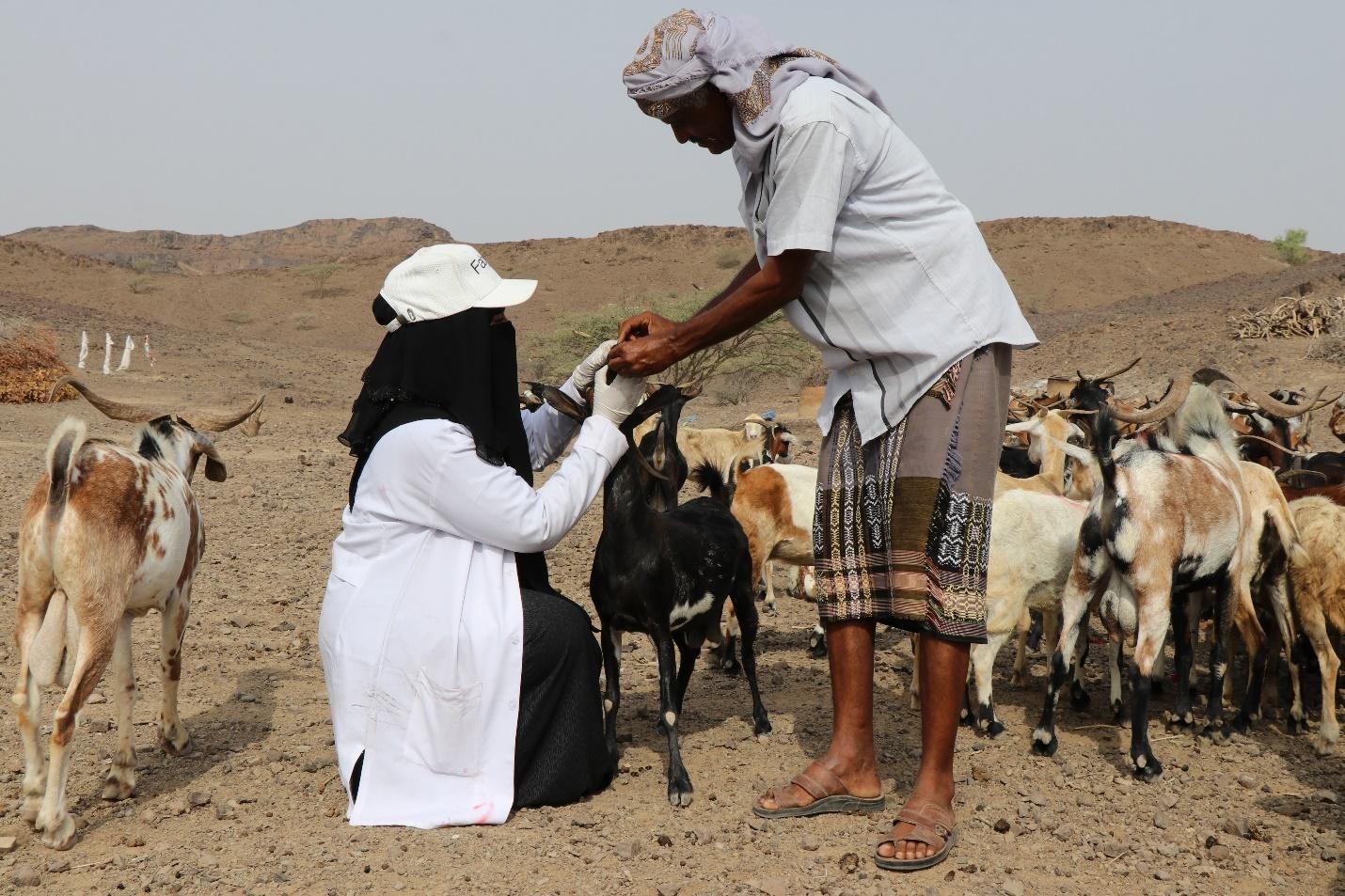FAO Supports Smallholder’s Resilience in Yemen through Animal Disease Control, Vaccination and Mass Treatment Campaigns

©FAO/Yemen
24 June 2020, Sana’a – The Food and Agriculture Organization (FAO) of the United Nations in Yemen, through the Smallholder Agriculture Production and Restoration Enhancement Project (SAPREP), funded by the Global Agriculture and Food Security Programme (GAFSP) in collaboration with the World Bank, launched a national animal vaccination and treatment campaign in partnership with local agriculture offices at the governorate and district levels. The campaign is part of FAO’s efforts to control transboundary animal diseases through regular vaccination and treatment activities.
Improving animal husbandry, livestock production and animal health services is an important sub-component to achieve SAPREP’s overall goal. The ongoing campaign is one of the activities undertaken to protect, vaccinate and treat small ruminants against Peste des Petits Ruminants (PPR) and Sheep and Goat Pox (SGP), and internal and external parasites, leading to heathier animals and increased income generation for vulnerable households in target areas. The campaign is expected to reach 1.8 million animals (sheep and goats) in 48 districts across the governorates of Shabwa, Abyan, Lahj, Hajja, Taiz and Sa’ada, benefiting over 41 000 rural households.
“This campaign helps farming families and Yemen’s agriculture sector in a time of crisis,” said FAO Representative in Yemen, Dr Hussein Gadain. “This collaboration between FAO and the local agriculture offices, supported by the World Bank, provides much-needed assistance to thousands of vulnerable households whose main livelihood is animal rearing.” Dr Gadain added “through a simple calculation, we can assess the value of such activity, one vaccine costs just USD 0.40 compared to over USD 100 to replace a dead animal.”
To ensure that the planned number of animals are vaccinated and treated, FAO appeals to animal owners in the targeted districts to cooperate by presenting their animals for vaccination and treatment.
To ensure the effectiveness of the vaccination and treatment campaign, 130 qualified and equipped teams have been deployed throughout the target governorates to secure proper vaccination of the animals and conduct post-vaccination sero-surveillance, surveying the level of herd immunity against PPR and SGP – two diseases of economic importance to pastoralists and agro-pastoralist communities whose livelihood depend largely on livestock.
The World Bank and FAO have a longstanding partnership in helping Yemeni farmers restore their livelihoods through sustainable agricultural solutions. FAO builds on previous successes accomplished in the livestock protection sector. In 2019 over 1.6 million animals were reached with veterinary services benefiting over 100 000 rural livestock breeders. Livestock production is the backbone for hundreds of thousands of Yemeni households making a living while facing crisis.
